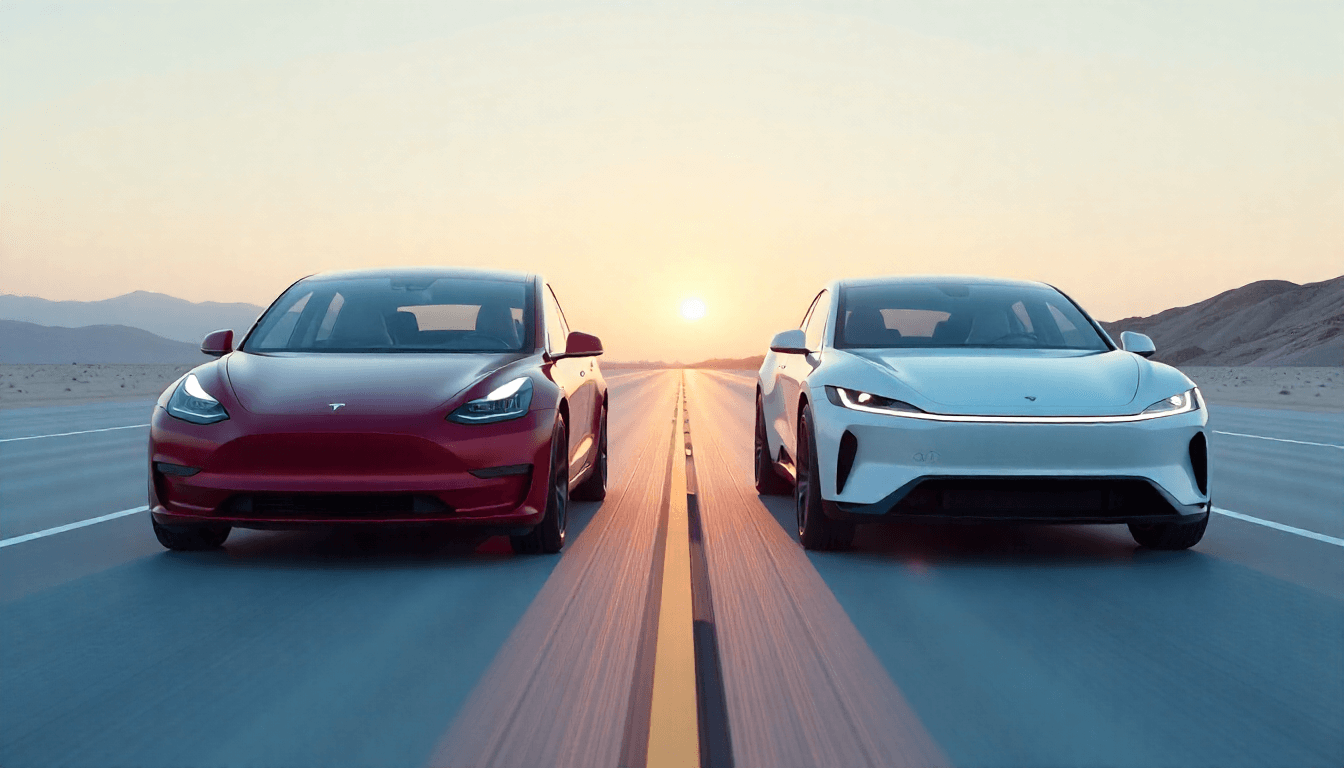The electric car market has become a battleground between the recognised leader, Tesla, and rapidly developing Chinese manufacturers such as BYD, Xiaomi, Nio and others. While Tesla used to be the undisputed technological and market giant, today Chinese brands are not only catching up, but in many aspects surpassing the American competitor.
Price and availability
One of the strongest advantages of Chinese manufacturers is their pricing policy. They offer a wide range of models, from ultra-budget to premium, which are often significantly cheaper than comparable Tesla models. For example, the Xiaomi SU7 costs less than the Tesla Model 3, but offers more range and more technological features. This price competitiveness allows Chinese brands to capture significant market share, especially in their home region.
Battery technologies and power reserve
Battery technology is a key element in the comparison. Research shows that Tesla, with its cylindrical 4680 batteries, focuses on high energy density and performance. BYD, meanwhile, with its Blade batteries (LFP technology) prioritises safety, durability and, importantly, cost reduction. BYD's batteries offer efficient thermal management and may be more suitable for urban and medium-distance driving, while Tesla's batteries show better performance for high-powered vehicles. Chinese companies are also actively using "structural battery packs", where the battery is part of the vehicle chassis to reduce weight and increase body rigidity.
In terms of range, Chinese electric cars offer comparable or even superior figures. For example, the BYD Seal has a claimed range of up to 570 kilometres, while the Model 3 Long Range has a range of up to 677 kilometres.
Performance and driving characteristics
In terms of dynamics and handling, Tesla has long been considered a benchmark. Its models are known for their "go-kart" handling, sharp steering and instant acceleration. However, Chinese brands are rapidly closing the gap. Comparative tests, such as the BYD Seal vs Tesla Model 3, note that the Tesla still feels more precise and balanced.
Autonomous driving and software
This may be Tesla's greatest strength. In tests on Chinese motorways conducted by TikTok Dcar's TikTok division, the Tesla Model 3 and Model X performed best in driver assistance technologies (ADAS), beating Chinese competitors including BYD, Xiaomi and Aito. Tesla's system, based solely on cameras and artificial intelligence, proved more reliable in a number of scenarios. In contrast, many Chinese competitors use a more expensive combination of cameras and lidar. However, Chinese companies are actively working to improve their autonomous driving technologies, and the gap is closing.
Chinese manufacturers often offer a richer set of features out-of-the-box, including projection displays (HUDs), advanced infotainment systems, and even options like mini-fridges that Tesla either doesn't have or offers at an additional cost.
Market share and trends
China, the world's largest electric vehicle market, is dominated by local brands. BYD, which offers both all-electric and hybrid models, will overtake Tesla in global sales in 2024. In the first quarter of 2025, BYD ranked first in the Chinese market with a share of 29.3%, while Tesla was in third place with a share of 7.5%. This trend shows that Chinese electric cars are successfully displacing Tesla in the home market.
Conclusion
Ultimately, the choice between Tesla and Chinese electric cars depends on the buyer's priorities.
- Tesla continues to be a leader in software, autonomous driving and dynamics. Its vehicles offer refined driving performance and simple, minimalist design.
- Chinese electric cars are gaining the upper hand in price competition, offering richer equipment in standard packages and actively developing battery technologies focused on safety and affordability.
Competition between these giants is driving innovation, which ultimately benefits all electric vehicle consumers.

 Tesla vs. Chinese electric cars: a comprehensive comparison">
Tesla vs. Chinese electric cars: a comprehensive comparison">
